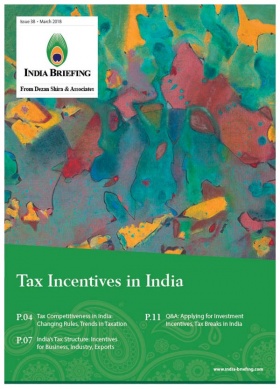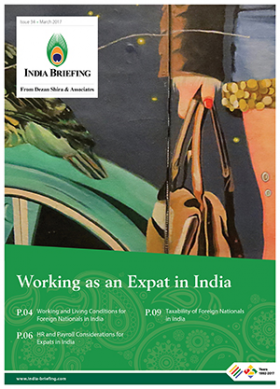BBIN Motor Vehicle Agreement Unlocks Northeast India, Grows South Asian Business Linkages
India’s federal government announced on October 15 that it is initiating the implementation of the Bangladesh, Bhutan, India and Nepal (BBIN) Motor Vehicles Agreement (MVA) – without the inclusion of Bhutan.
In June 2015, Bangladesh, Bhutan, India, and Nepal (BBIN) reached the historic transport deal that would allow motor vehicles to transport persons and cargo through each country with ease. This would reverse decades of frustration for businesses conducting overland trade between BBIN countries.
Bhutan was unable to secure their public and parliamentary approval for the deal. The country’s parliament stated environmental concerns for stalling the agreement.
Nevertheless, Bangladesh, Nepal, and India have decided to proceed with implementing the deal without Bhutan’s participation.
The new deal is designed to lift the geopolitical constraints that have hindered the flow of people and goods through Bangladesh, Nepal, and India. The finalized Motor Vehicle Agreement (MVA) will increase transport options between these countries, creating strategic trade partnerships, and ultimately boosting the regional economy.
This in turn will revitalize the development of India’s northeast states – Arunachal Pradesh, Assam, Manipur, Meghalaya, Mizoram, Nagaland, and Tripura. It will also allow mainland Indian businesses to develop more cost and time effective supply lines and distribution channels for the region.
The BBIN MVA
Prior to this agreement, vehicles had the right to travel through the BBIN countries, but most of the facilitating agreements were bilateral, thereby necessitating a variety of permits at different stages of the journey.
All passenger and cargo vehicles, for example, had to fill out a form at the border before gaining permission to enter. This, in combination with poor transport infrastructure, caused overland cross-border travel and trade to become unfeasible for many businesses in the region.
The BBIN pact streamlines the process of acquiring cross-border permits. However, permitted travel will be limited to pre-designated routes. Meanwhile, the MVA signatories are committed to developing better overland transport infrastructure between the implementing countries.
In its latest briefing, the Indian government announced that bus services between major towns in the three countries (Nepal, Bangladesh, and India) are under discussion. These include services on the Kathmandu-Bodhgaya, Janakpur-Patna, and Dehradun-Mahendranagar routes.
Impact on northeast India
The primary benefit of the BBIN MVA for India-based companies is the ability to travel through Bangladesh.
Although India and Bangladesh already have a vehicle transport agreement, authorities restricted vehicles from traveling more than 93 miles (150 km) across the border. Transporters that wanted to ship goods beyond 93 miles of the border – had to transfer the goods to another vehicle to complete the journey.
To avoid this logistical cost, some transporters simply preferred to drive around the problem. A manufacturer in Kolkata, West Bengal state that needed to deliver product to Agartala, Tripura state, for instance, could either plan for multiple permits and transport operators to reach Agartala directly through Bangladesh or plan a 1,000 mile (1700 km) journey around Bangladesh.
With the BBIN MVA, that same manufacturer can use one transporter for a 280 mile (450 km) trip through Bangladesh without dealing with the existing administrative burdens.
Thus, the BBIN MVA will, most significantly, ease the movement of goods from mainland India to its northeast economic centers, namely Agartala (Tripura), Guwahati (Assam), and Shillong (Meghalaya).
Poor infrastructure, difficult terrain, insurgent politics, and geopolitical constraints have thus far kept the northeast region underdeveloped and isolated for many years. Still, the northeast states are an important region in terms of their natural resources and international border access.
Northeast India contains 30 percent of India’s freshwater reserves. This access to water has allowed hydropower operations and the agricultural industry to develop in the region, although this has not progressed fast enough or reached full potential. The MVA may accelerate this development.
Further, the motor pact will allow for the setting up and expansion of the region’s rubber, bamboo, and food processing industries.
Recently, the region has attracted major foreign investments in its infrastructure, as the federal government continues to push for its greater economic engagement and linkage with mainland India and neighboring countries.
Overall, industrial development will also become a viable option for the northeast as transport costs get lowered and access to comparatively cheap labor opens up. The region has navigable rivers, but currently lacks direct access to any port. With the opening of roadways to Bangladesh, manufacturers will find it easier to transport products to ports in Chittagong, Bangladesh or larger urban centers in India.
Impact on South Asian trade
Northeast India will benefit significantly from the BBIN MVA, but the integration of the signatory economies will profoundly affect South Asian trade flows. Experts estimate that trade across South Asia will increase by 60 percent because of the pact.
Accordingly, the BBIN MVA is not only a stepping stone to improve the investment climate of northeast India, but also South Asia. In future, this may convince Bhutan and other regional governments to consider joining the pact.
Editor’s Note: This article was originally published in July 2015, and has been updated as per the latest developments.
About Us
India Briefing is produced by Dezan Shira & Associates. The firm assists foreign investors throughout Asia and maintains offices in China, Hong Kong, Indonesia, Singapore, Vietnam, and Russia.
Please contact india@dezshira.com or visit our website at www.dezshira.com.
- Previous Article Massive Data Breaches and Cyber Threats in India
- Next Article Make in India: Still Falling Short after Three Years













